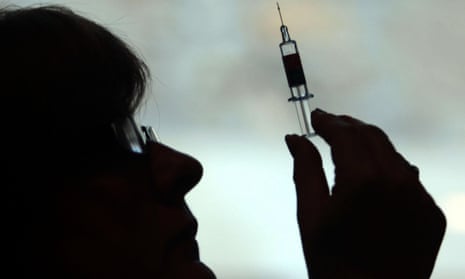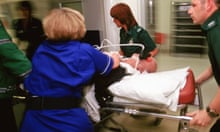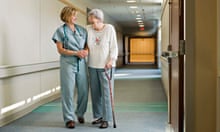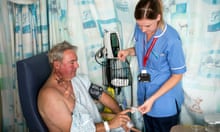Everyone knows what a nurse is and does. Don’t they? Yet, often in media stories relating to nurses, people express their views, often with no significant understanding of nurses or nursing. The general public’s view of nurses and nursing is, up to a point, influenced by televised drama, soap operas and the occasional documentary. They may read about nurses, maybe a biography, but I suspect that’s pretty rare and doesn’t go much beyond Florence Nightingale and Mary Seacole, neither of whom can be construed as contemporary representations of the profession.
Those with chronic illness or personal experience of healthcare services have a more realistic view, but it is usually when things go awry or there is dissatisfaction that their stories reach a wider audience. It is these relatively informal sources and these stories, which allow many people who have no other more personal connection with nursing to feel that they know what a nurse is and what they do.
My own family (I’ve been a registered nurse for almost 40 years) readily say that they don’t see how I can still be a nurse because I don’t wear a uniform or work in a hospital. My mother has remarked that I work in a university, which surely makes me a teacher and “not a nurse anymore”. In my job I spend quite a bit of time in a range of local community forums and we often have conversations about nurses and nursing. I take every opportunity to talk about the changing role of nurses, the changing needs of patients and to articulate why the old stereotypes are so wide of the mark and so unhelpful.
The debates over the past couple of years about whether or not nurses need to be graduates arise because of these stereotypes – kind, gentle, practical women for whom rigorous education is somehow damaging – and also because of the lack of public understanding of the scope and nature of the modern nurse’s work and the knowledge that must inform it. I did some work recently with schoolchildren (aged 4 to 11) and asked: “What do nurses do?”. Answers ranged from “give out pills” to “sing to people to make them feel better”.
The pictures they drew were almost always of females, with caps on their heads, standing beside a bed with a rather glum person in it. No pictures of a nurse in a laboratory busy with research; no pictures of a nurse performing minor surgery or endoscopy; no pictures of a nurse working alongside other healthcare professionals or prescribing medication in a clinic; no pictures of a nurse teaching. The representations were of a lone, uniformed nurse, smiling benignly at her patient – a scribbly, but unmistakably beatific presence. It is disappointing to think that the next generation’s perception of nurses and nursing is going to be pretty similar to the last two or three generations.
What nurses do and the effect of nursing on patients and experiences of care is increasingly researched and documented. A starting point of high quality, degree level preparation is now established within the profession, and the importance of continuing education and career-long development is recognised as a necessary response to the complexity of patient’s needs and the assurance of patient safety. So why does the public conversation around nursing remain so out of kilter with this logical and necessary progression? It’s not too far off the mark to say that there is little shift in the public view from the stereotypes of the selfless heroine, the over-sexualised submissive handmaiden or brisk disciplinarian, or the sentimentalised angelic martyr giving her all for little or no reward except a warm glow of satisfaction and a heartfelt “thank you”.
I accept there’s some exaggeration here for blogging effect, but there is no exaggeration of how harmful this lack of understanding of modern nursing is. As the population ages and people live longer with multiple and chronic pathologies, the contribution of nurses and nursing to the economy and society is increasingly important. For the general public to realise the benefit of nursing expertise they require a much better general understanding of the impact that nurses have on outcomes and quality of life, and the multiplicity of roles that nurses can play in their lives.
When nurses do examine and articulate their impact, they do so by publishing in academic and scientific journals, by attending professional conferences and by teaching. The general public does not pick up on this positive work, the media takes little interest in nursing other than to cry crisis or report poor practice, and the profession itself has no really serious attempt to engage the public in the rapidly changing role and functions of the modern nurse. It is little wonder that images and expectations are stuck somewhere between the 1950s and the 1980s.
We’re running a themed week on nursing on the Healthcare Network. Tweet us (@GdnHealthcare) saying why you nurse on Twitter using the hashtag #whyInurse. And, if you’ve got a standout experience you’d like to share, tell us about it here.
If you would like to write a blogpost for Views from the NHS frontline, read our guidelines and get in touch by emailing healthcare@theguardian.com.
Join our network to read more pieces like this. And follow us on Twitter (@GdnHealthcare) to keep up with the latest healthcare news and views.








Comments (…)
Sign in or create your Guardian account to join the discussion